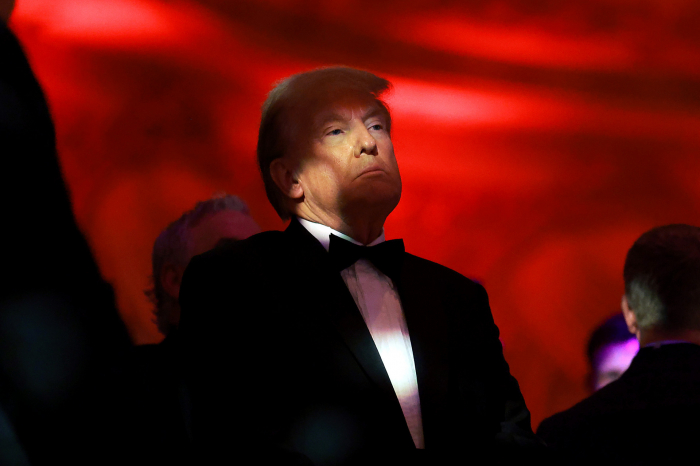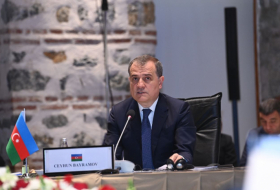U.S. allies that regularly share intelligence with the U.S. are looking at ways to safeguard top-secret information from what they expect to be a very leaky Trump administration — but their options are limited.
These countries have long been worried that Trump’s track record of revealing classified information would continue into his second term. That alarm has deepened as Congress has signed off on his controversial picks to oversee intelligence operations and amid accusations that sensitive data is already being mishandled.
But cooperation on intelligence collection and sharing runs deep — and wouldn’t be easy to disentangle. Washington often gives more than it receives, and U.S. and European intelligence agencies often conduct joint collection and operations.
You “can’t just flip off a switch,” said a northern European defense official who, like others, was granted anonymity to discuss sensitive intelligence relationships.
Still, there could be options to add more safeguards around human intelligence, the most prized and closely guarded information gleaned from assets in foreign countries whose lives could be at risk if exposed. They could, for example, leave out details in conversations with U.S. counterparts that might reveal an operative’s location or identity.
At least some allies did close off a bit more during Trump’s first term — after he took actions that repeatedly stunned intelligence officials, like tweeting a top-secret image of an Iranian rocket launch site and sharing highly sensitive Israeli intelligence with the Russian foreign minister.
A former senior official from Britain’s foreign intelligence service, MI6, said that when it came to highly sensitive projects, the service was careful about what to divulge during the first Trump administration. MI6, Britain’s foreign intelligence service, declined to comment for this story.
“There always is, mind you, with any administration, we don’t just open up the books,” said the former official. “But we were even more cautious the last time with Trump, and I find it hard to believe the service won’t be a little more guarded this time.”
Anxious foreign partners may be hoping they can deal more with CIA Director John Ratcliffe and less with Director of National Intelligence Tulsi Gabbard.
Ratcliffe served as DNI during the first Trump administration and has been regarded as one of the president’s less controversial Cabinet nominees despite past concerns that he politicized intelligence.
During his tenure, “the sky didn’t fall,” said Randall Phillips, who spent almost three decades in the CIA’s Directorate of Operations. Ratcliffe’s confirmation by the Senate last month was supported by 20 Democrats and every Republican senator.
CIA spokesperson Liz Lyons said there is “no credibility” to the allegations that foreign partners may hold back on sharing intelligence under Trump, adding that the agency takes its international intelligence partnerships “incredibly seriously.”
“Director Ratcliffe is actively deepening them to further U.S. national security, counter adversaries around the world, and promote international stability,” Lyons said.
Trump’s other nominees to lead key agencies have been less reassuring. Gabbard, who was confirmed last week as the nation’s top spy chief, is a one-time skeptic of U.S. intelligence who has echoed Russian talking points on the war in Ukraine. As a member of Congress, Gabbard introduced a resolution calling for the federal government to drop all charges against former NSA contractor Edward Snowden, who leaked a trove of classified documents to the press.
While the role of DNI is largely bureaucratic, she will oversee the 18 agencies that make up the U.S. intelligence community and serve as the president’s primary intelligence adviser.
In response to a request for comment about the concerns expressed by current and former U.S. and foreign officials, Deputy Director of National Intelligence for Strategy and Communications Alexa Henning said, “These anonymous, former officials couldn’t be more out of touch with reality. They are trying to undermine U.S. national security by pushing lies to their media allies.”
Kash Patel, a firebrand Trump loyalist who the Senate confirmed as FBI director Thursday, has likewise troubled allies. As a congressional staffer, Patel worked to undercut a House investigation into Russia’s efforts to interfere in the 2016 presidential election. He has pledged to radically overhaul the agency, which plays a vital intelligence role, and root out a so-called deep state.
A spokesperson for Patel did not respond to a request for comment.
But the worries are far from hypothetical. A month into its second term, the Trump administration has already faced accusations it has mishandled sensitive information. The CIA is reported to have sent an unclassified email listing the first names and first initials of surnames of recently hired analysts and operatives, many of whom were hired to focus on China, to the Office of Personnel Management in a bid to comply with the administration’s effort to downsize the federal workforce — potentially exposing them to eavesdropping by foreign adversaries.
Sen. Mark Warner of Virginia, the top Democrat on the Senate Select Intelligence Committee, described it as a “disastrous national security move” that would put a “direct target” on the backs of the new recruits for China.
It’s the kind of action that is being closely watched by partners like those in the Five Eyes — the intelligence alliance of the U.S., Canada, the United Kingdom, Australia and New Zealand. The group is one of the most valuable networks for sharing intelligence among close U.S. allies.
“The Five Eyes folks at the higher levels are already going to be a little worried given the track record that we already have,” said Kelly McFarland, a former analyst with the State Department’s Bureau of Intelligence and Research.
But the imbalance of information shared between the U.S. and its partners means that they have more to lose should they cross Trump, given his often transactional approach to foreign affairs.
“If they did anything to withhold something, there would be a fear of retribution from the U.S. side,” McFarland said.
Yet there may be breakdowns in intel sharing as a result of the restructuring of the federal government workforce, which is also hitting intelligence agencies.
The CIA, along with a number of other intelligence agencies, received deferred resignation offers from the Trump administration allowing full-time civilian officials to resign while receiving full pay through September, despite previous statements from the Office of Personnel Management that people in national security roles would be exempt.
The potential loss of a cadre of experienced U.S. intelligence officials could set relationships back in a realm where trust between counterparts is critical.
Intelligence sharing between partner countries often happens at all levels, and individual station chiefs and department and section heads are given significant leeway as to what to share with their U.S. counterparts. When dealing with such sensitive information, trust matters. “That’s a domain where relationships are really important,” said the European defense official.
The United States has historically been the biggest contributor of intelligence among the Five Eyes partners and beyond. U.S. intelligence played a crucial role in alerting and galvanizing allies in Europe about the Kremlin’s plans to invade Ukraine months before Russian tanks rolled across the country’s borders.
“It is not only about sharing but receiving. U.S. eyes and ears are essential for Ukraine,” said a German official who was granted anonymity as they were not authorized to speak to the press.
But the alliance is not without its uses for the United States. Five Eyes members collaborate closely on electronic surveillance, with different members of the alliance taking responsibility for different regions of the world, said Philips, who left government in 2011.
“There were multiple instances where we were able to learn things from those relationships that were very helpful,” he added, speaking about the United States’ relationships with its Five Eyes partners.
As Western security officials descended on Germany for the Munich Security Conference last week, Trump’s call with Russian President Vladimir Putin stunned European officials who fear they are being frozen out of talks to end the war in Ukraine. French President Emmanuel Macron has described Trump’s return to the White House as an “electroshock” for the continent.
On intelligence sharing, some are proceeding with business as usual. “Our policy has not changed,” Kaupo Rosin, Estonia’s director of foreign intelligence said. “We’re worried about many things, but not that,” another European official said.
Others were more uneasy.
“Political trust with the U.S. is eroding. That cuts across all elements of national security including the IC,” said a former British military official. “But at a day-to-day level with intelligence professionals, I don’t think there is an issue — yet.”
“This feels more of a political problem rather than an operational one,” the individual said. “But at some point, those worlds will converge.”
Politico
More about:
















































